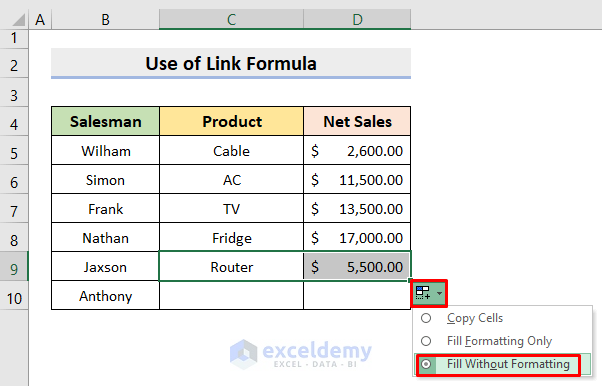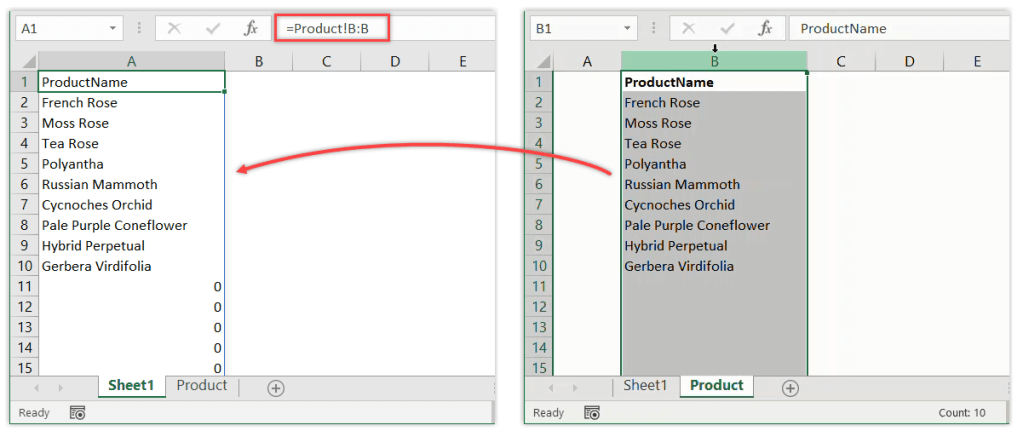5 Ways to Dynamically Link Sheets in Excel

Linking sheets within an Excel workbook dynamically can streamline data management, making your spreadsheets more efficient and easier to maintain. Here are five robust methods to link data between sheets, allowing for real-time updates and seamless data integration.
1. Using the VLOOKUP Function


The VLOOKUP function is one of the most common ways to pull data from another sheet:
- Ensure the source sheet has a column with unique identifiers (keys).
- In the destination sheet, use
=VLOOKUP(A2, 'SourceSheet'!$A$2:$B$100, 2, FALSE)where A2 is the key you want to look up, 'SourceSheet' is the name of your source sheet, and 2 indicates the second column in the range where the matching value should be returned.
💡 Note: VLOOKUP is not dynamic by default. If columns are added to or removed from the source table, you'll need to adjust the column index number manually.
2. Utilizing the INDEX and MATCH Functions Together

While VLOOKUP is powerful, the combination of INDEX and MATCH offers more flexibility:
- First, determine the row using MATCH:
=MATCH(A2, ‘SourceSheet’!A2:A100, 0). - Then, fetch the data with INDEX:
=INDEX(‘SourceSheet’!B2:B100, MATCH(A2, ‘SourceSheet’!A2:A100, 0)).
🛈 Note: This method is dynamic; it will still work even if columns are inserted or deleted in the source data.
3. Creating Indirect Links with CELL References


Using INDIRECT allows you to create dynamic links:
- Set up a cell with the sheet name you wish to reference.
- In your formula, use
=INDIRECT(A1&"!B2")where A1 contains the sheet name and B2 is the cell you're referencing.
4. Exploiting Data Consolidation

Data consolidation involves combining data from multiple sheets into a summary sheet:
- Go to Data > Consolidate.
- Choose a function (like Sum, Average, etc.) and select your range from each sheet you want to link.
- Select "Create links to source data" for dynamic updates.
📋 Note: Ensure all the sheets are structured similarly for consolidation to work effectively.
5. Leveraging Power Query for Advanced Data Linking

Power Query, available in Excel 2010 and later, provides advanced data manipulation capabilities:
- Connect Power Query to external data sources, including other Excel files.
- Load the data into Excel, and use Power Query to transform and merge data from different sheets or workbooks.
Here's how you can link sheets using Power Query:
| Step | Description |
|---|---|
| 1 | Launch Power Query from the 'Data' tab. |
| 2 | Select the source data or workbook. |
| 3 | Transform and manipulate data as needed. |
| 4 | Load the query into Excel, ensuring the connection is refreshed to keep data up-to-date. |

As we wrap up, it's clear that dynamically linking sheets in Excel not only saves time but also reduces errors by automating data retrieval. Whether you use VLOOKUP, INDEX and MATCH, indirect cell references, data consolidation, or the power of Power Query, each method has its advantages in different scenarios. Understanding these tools allows you to harness Excel's potential for data analysis and reporting to its fullest, ensuring your workbooks are as smart and efficient as possible.
Can I use VLOOKUP to link data from different workbooks?

+
Yes, but you’ll need to open both workbooks. Use the workbook name, enclosed in square brackets, and then follow it with the sheet name, e.g., =VLOOKUP(A2, ‘[SourceWorkbook.xlsx]SourceSheet’!A2:B100, 2, FALSE).
How do I keep my links up to date?

+
To keep your links dynamic, regularly update the source data and ensure your formulas or queries refresh automatically or upon opening the workbook.
What if my source data changes frequently?

+
Consider using Power Query for complex transformations and refresh settings. For simpler scenarios, Excel’s Data > Refresh All can update all external data connections.



